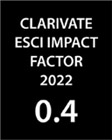Editorial: Governance challenges in peripheral regions
DOI:
https://doi.org/10.17649/TET.37.3.3507Keywords:
periphery, governance, self-governance, development, Baranya countyAbstract
Based on the empirical research (NKFIH project no. 132294 Governance challenge in peripheral areas) to be introduced in this special issue, we supposed that the development of peripheral regions depends on the dynamics of settlement centres and their network as well as on the power of actors and institutions. Interest representation, however, is determined by the ability of generating local resources as well. The theoretical and methodological frames will be introduced in this short contribution.
We assume that the eastern peripheries of the EU, and so the selected research area is strongly dependent on external resources, on the superior and therefore more remote power centres, mainly due to the centralized resource allocation mechanisms and centralised governance features. The studies in this thematic issue support this hypothesis from several aspects. The changing power relations of the multi-level governance system in different historical periods (Hajdú, Horeczki 2023), centralisation and development policy priorities (Pámer et al. 2023; Finta, Horeczki 2023), or the weakening influence of the European Union (Brucker, Finta 2023) have produced multiple disadvantages for most municipalities of Baranya county. A special aspect of the region is that the decline of the county's capital city makes it more difficult for the county to catch up (Póla, Pálné Kovács, Gibárti 2023).
Our research results have pointed out the fact that local power actors in the periphery are less capable of mobilising local resources, building development coalitions due to the lack of institutional capacity, bad power position, and political dependence. However, the results also show that there are also settlements considered successful on the periphery (Horeczki, Póla 2023), although as an exception rather than a realistic scenario for all municipalities. The study by Pálné and her colleagues (2023), as a summary, interprets development policy failure in light of the views of different levels of government and actors on their scopes for manoeuvre and position of power.
Downloads
Published
How to Cite
Issue
Section
License
Copyright (c) 2023 Horeczki Réka, Pálné Kovács Ilona

This work is licensed under a Creative Commons Attribution 4.0 International License.
Authors wishing to publish in the journal accept the terms and conditions detailed in the LICENSING TERMS.






